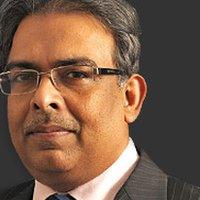Ayodhya verdict: The man who helped Lord Ram win
- Published
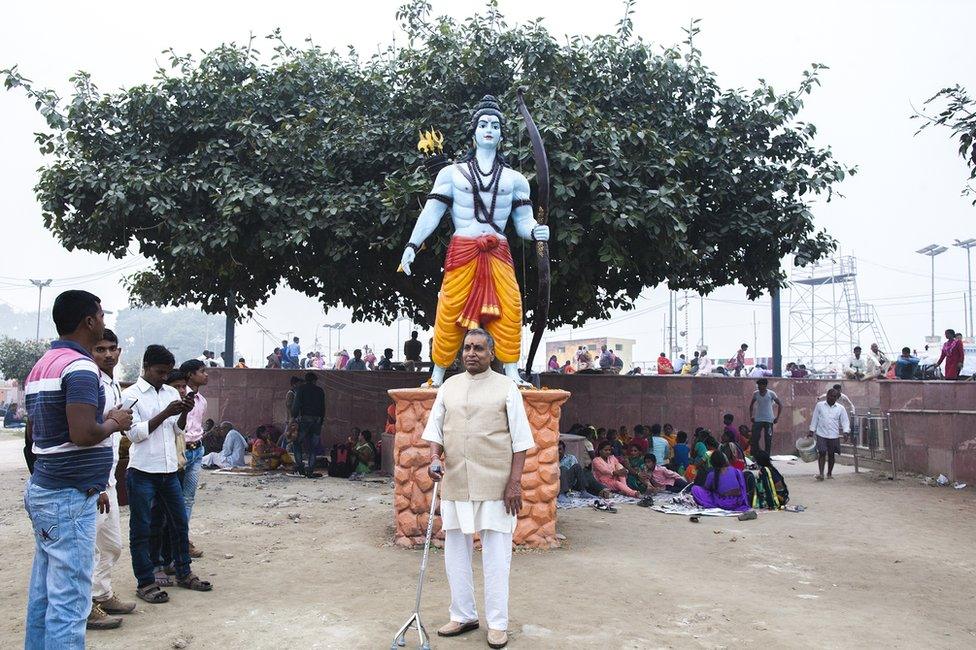
Triloki Nath Pandey represented Lord Ram for more than a decade
For more than a decade, he sat in musty courtrooms, representing a Hindu God in one of the country's most contentious and deadly disputes.
In court papers, Triloki Nath Pandey is described as the "next friend" of the infant Lord Ram. The deity was one of the litigants in the long-running dispute over a plot of land in the northern Indian temple town of Ayodhya, which was decided in his favour by the Supreme Court on Saturday.
"To represent God is a glorious job. To think that I was chosen to do this job from among millions of Hindus made me proud and joyful," Mr Pandey, 75, told me recently.
For centuries, a deity or an idol has been treated as a "juristic person" in Indian law because many devotees donate their land and possessions to idols who are synonymous with their shrines. A devotee or the manager of the shrine or trust typically handles the deity's possessions. In light-hearted legalese, the idol is represented by someone called a "friend" of God.
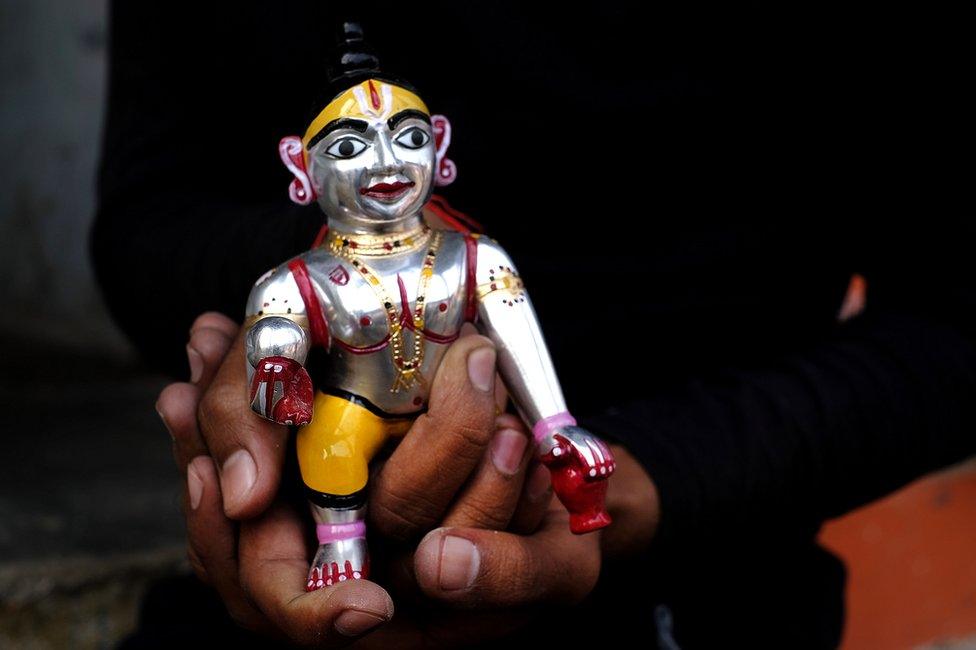
An idol of infant Ram being sold in a Ayodhya bazaar
But how do you define the best interests of God? And how can you be sure that the person is acting in God's best interests?
These are tricky matters which have never been statutorily defined in the law, and have been handled on a case-by-case basis. But usually, unless another person also claims to be a "best friend" of the deity, there is no dispute. In other words, says a lawyer, God is entitled to one friend.
A Hindu mob tore down the 16th Century Babri mosque in Ayodhya in 1992, triggering riots in many parts of India. Many Hindus believed that the mosque stood at the exact spot where their deity, Lord Ram, was born and wanted to build a temple there. On Saturday, the Supreme Court acceded to their wishes and ruled that Muslims would get another plot of land to construct a mosque.
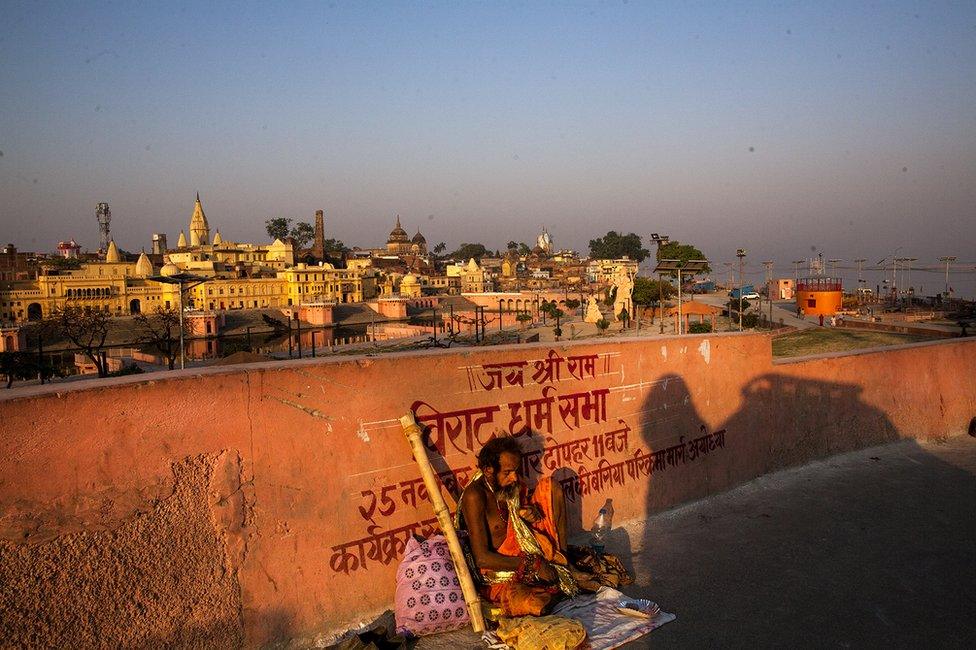
Ayodhya is one of India's holiest cities
Mr Pandey spoke for the deity who millions of Hindus revere for his sense of justice and benevolence. Lord Ram is also the protagonist of a mythological epic, Ramayana, where he is a symbol of self-sacrifice and heroism for many Hindus.
Lord Ram's petitions in the court - essentially backed by a clutch of Hindu groups and meticulously written and represented in courts by some of India's leading lawyers - talked about worship, divinity, incarnations, and spirits of the divine.
They spoke about how it was "manifestly established by public records of unimpeachable authority" that the disputed plot was actually the place where the deity was born. The petitions added that the deity's spirit "can be experienced by those who pray there".
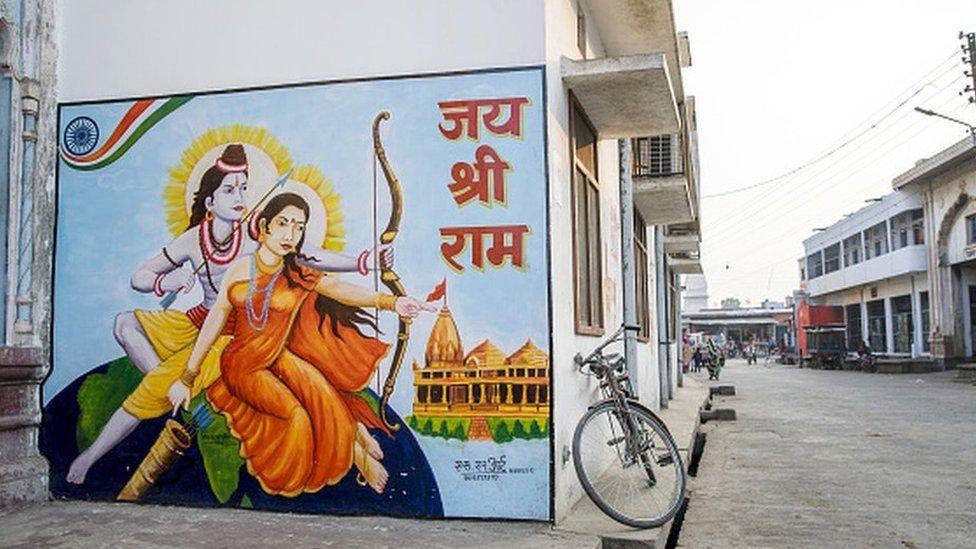
A mural depicting Lord Ram and his wife, Sita, on a wall in Ayodhya
"That spirit is the deity," one of the petitions said.
Through Mr Pandey, Lord Ram claimed ownership of the land in Ayodhya, purely because he claimed it was his birthplace.
The BBC's Vikas Pandey explains the historic Supreme Court verdict in Ayodhya holy site dispute,
On Saturday, the judges also concluded that it was the "faith and belief of Hindus" that the place was the birthplace of Ram, even before the mosque was constructed.
Mr Pandey, a tall, strapping man, has actually been the third "friend" of Lord Ram after the deity became one of the litigants in the dispute in 1989. The first two were a deceased high court judge, and a retired university lecturer.
Legal aid
Mr Pandey was born to a farming family in the northern state of Uttar Pradesh. The eldest of four children, he went to a local school and college, studying Hindi and later training to be a teacher. But he never really held a job.
In high school he got involved with the right-wing Rashtriya Swayamsevak Sangh (RSS), which is widely regarded as the parent organisation of the ruling BJP. Much later, he moved to work with the Vishwa Hindu Parishad (VHP), or World Hindu Council, which was at the forefront of the demolition of the mosque. Political scientist Manjari Katju describes the group as a "clamorous and militant sibling of the RSS".
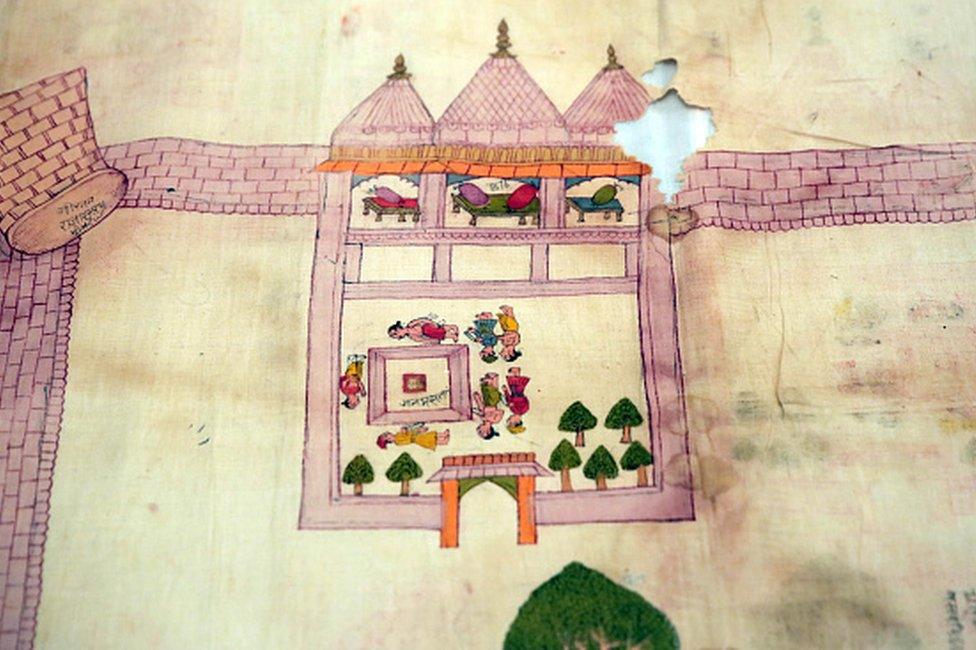
The judges concluded that it was the "faith and belief of Hindus" that the place was the birthplace of Ram
During his time with the VHP, he travelled across Uttar Pradesh to "raise consciousness among Hindus".
"I used to go to places where we used to hear reports of large-scale conversion of Hindus to Muslims, and tried to stop it. I believe that Hindu society had become diminished. To raise Hindu pride, we needed to become aggressive and not remain defensive," Mr Pandey says.
Good memory
When the mosque was razed to the ground, Mr Pandey became involved in organising legal aid for 49 men accused of participating in the demolition. He also helped a number of Hindu monks defend themselves in independent investigations probing the demolition. (One of the investigations took 17 years to complete; and the criminal cases are still pending in courts.)
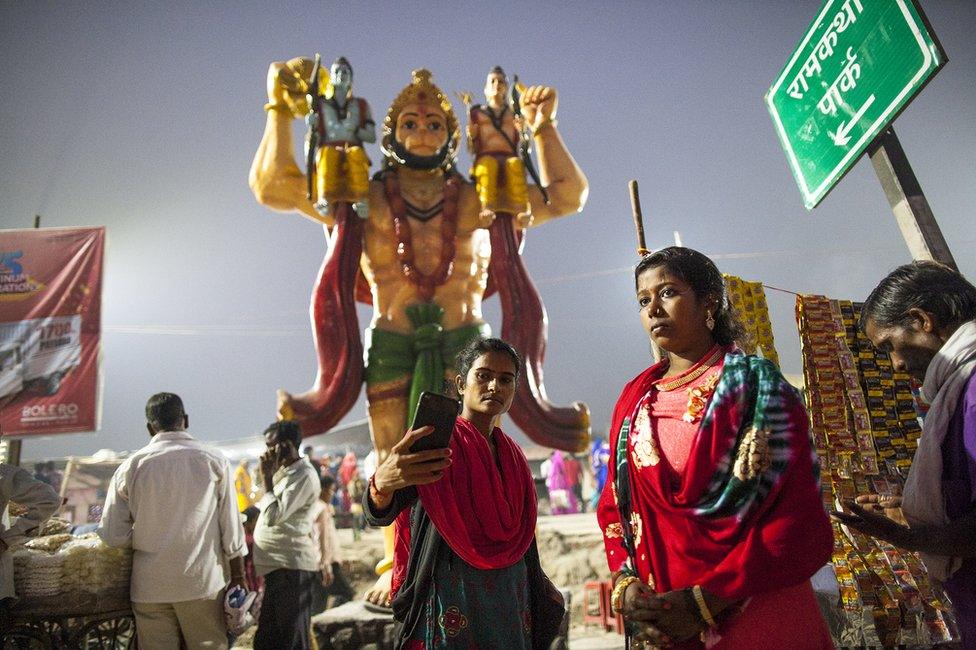
For centuries, a deity or an idol has been treated as a "juristic person" in Indian law
During the marathon 40-day final hearings in the Supreme Court, Mr Pandey, who is battling arthritis, sat on a chair. "I must have visited courtrooms hundreds of times in the last 10 years or so. I didn't talk much there. The lawyers spoke on my behalf. Remember, I am the symbol of God," he said. He would also sign papers on behalf of the deity."
Mr Pandey lives in a single-room on the sprawling dusty VHP campus in Ayodhya, where other members of the organisation have been agitating and waiting for a temple to be built since they demolished the mosque. After the verdict, he ceases to be a "friend" of God, but he is unfazed by this.
"I am with Lord Ram always. When I am with him, what is to fear? God has been vindicated."

Read more from Soutik Biswas

Follow Soutik on Twitter at @soutikBBC, external
- Published11 October 2019
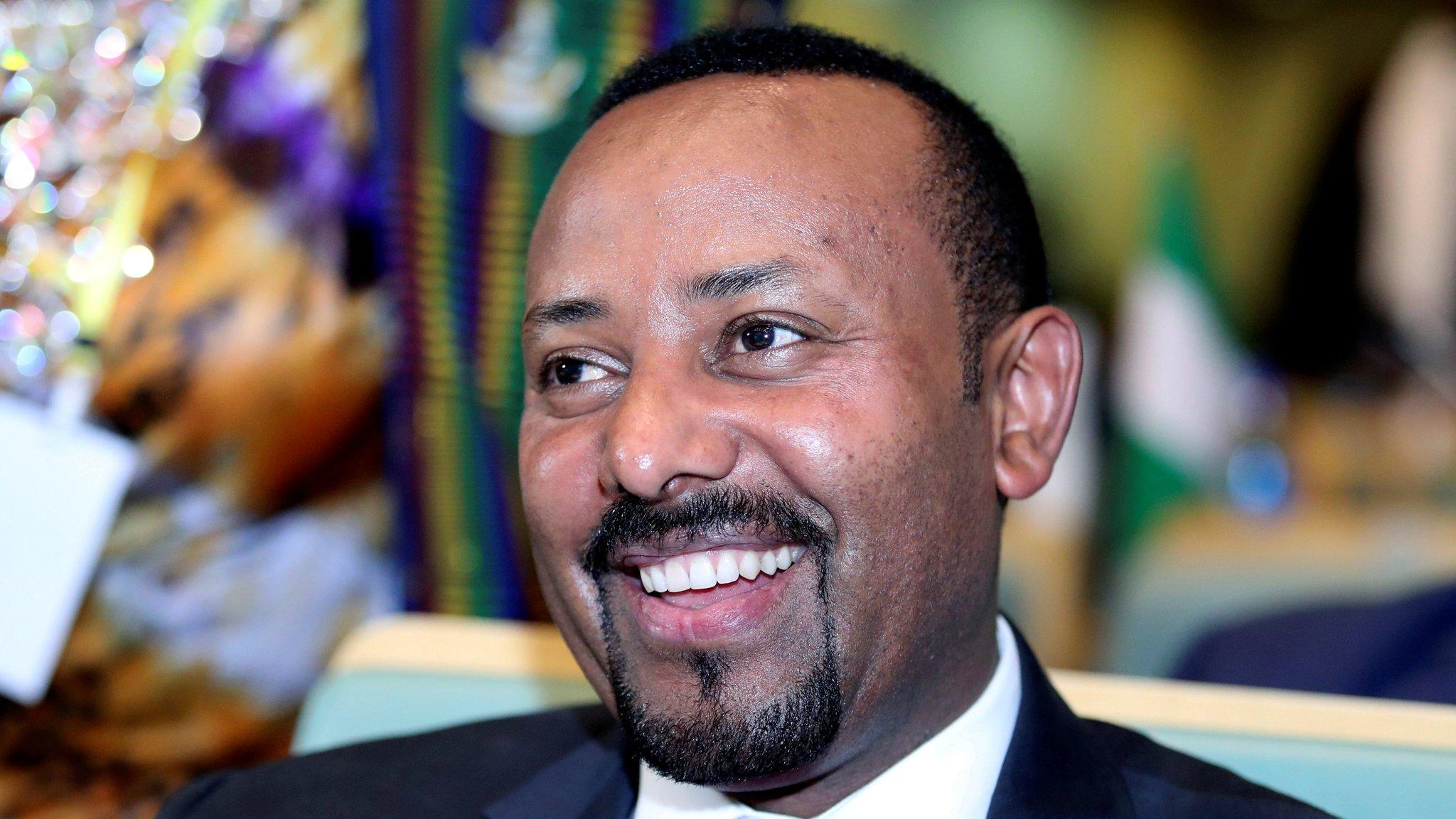
- Published14 October 2019
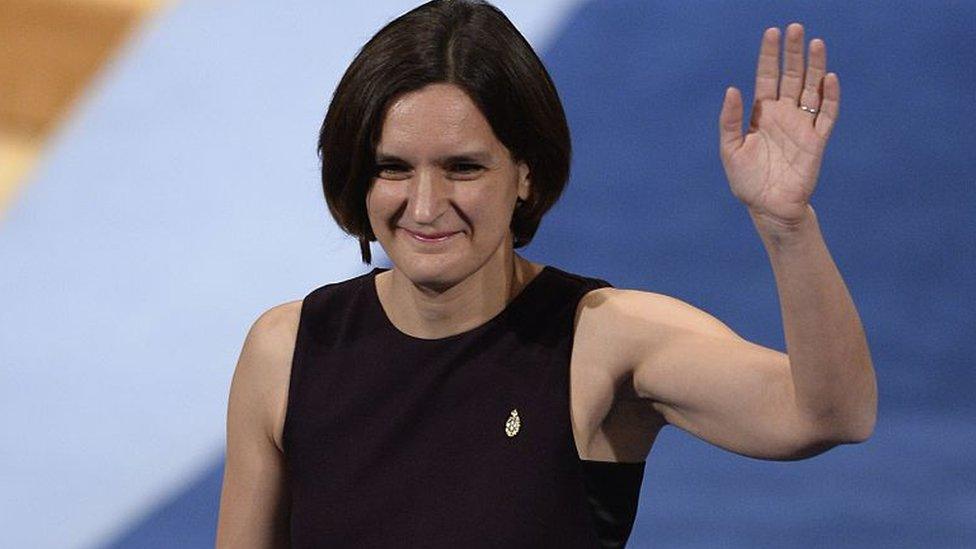
- Published14 October 2019
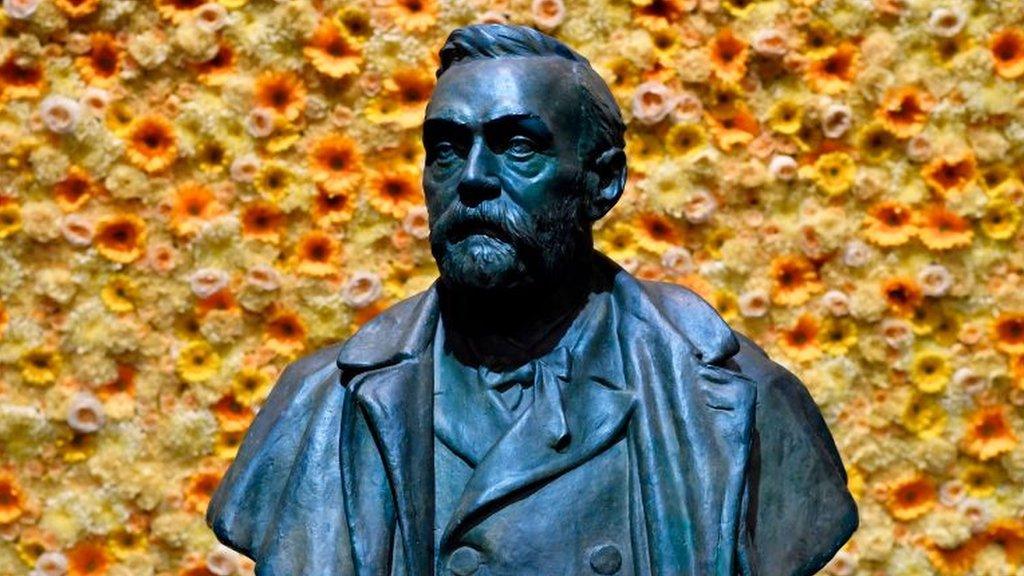
- Published10 October 2019

- Published24 July 2013
